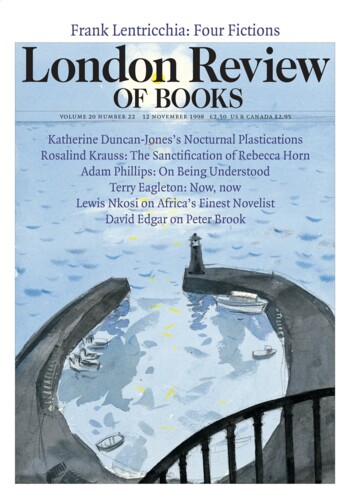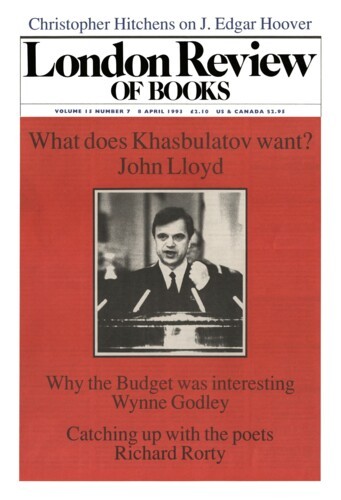Island Politics: the return of Australia’s Coalition Government
Sylvia Lawson, 12 November 1998
The headline news around the South-East Asian crescent after last month’s Australian Federal Election was ‘Hanson Loses Seat.’ For the South China Morning Post, the Straits Time and the Nation in Bangkok, it seemed that Pauline Hanson, the red-haired maverick of the populist Right, was all that mattered about Australia. Ratih Hardjono, who works from Melbourne for Jakarta’s daily Kompas, led with John Howard’s win and the election-night speech in which he promised, hand on heart, a new commitment to Aboriginal reconciliation. Hardjono also wanted Indonesians to learn something about the democratic process from Australia: compulsory voting, the distribution of preferences to candidates who get less than 50 per cent of the primary vote, the hectic dramas of late-night scrutineering. Like David Malouf, who has spoken of Australian election days as unacknowledged national carnivals, Hardjono enjoys them hugely. Better than most in early October, she also knew that there’s worse than Pauline Hanson.



